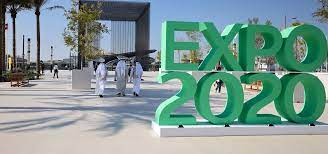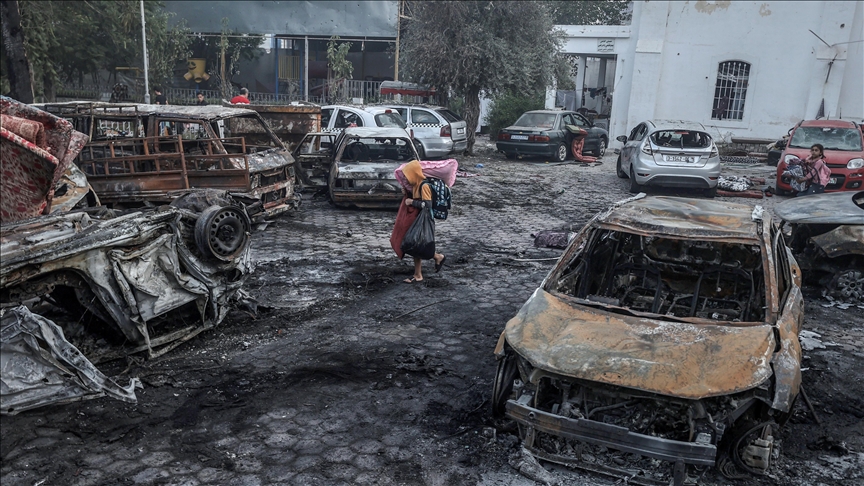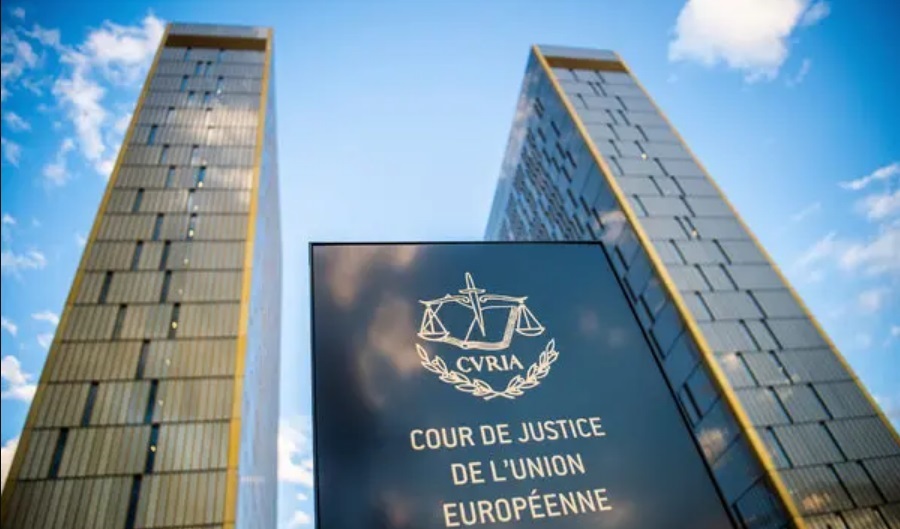
Russia's foreign minister Sergey Lavrov with his South African counterpart, Naledi Pandor
The Pan Adfrikanist Watchman
There was a common thread in the message that Russia’s Foreign Minister Sergey Lavrov brought to the three southern African countries – South Africa, eSwatini and Angola- that he visited late last month.
And that is the unambiguous conviction of Russia that the ‘collective West’ led by the United States of America, is on an unabashed campaign to “draw African states into their anti-Russia policy” in the protracted Ukraine/Russian war, which enters its first year on February 24th.

Curiously, on that date (February 24th) South Africa will launch a joint military drill with the marines of China and Russia in an operation dubbed, ‘Mosi’ off its coast – a decision that has attracted criticism from the West, but won’t deter Pretoria’s resolve.
After all, South Africa is fellow member of BRICS – the five-member bloc comprising Brazil, Russia, China, India and South Africa – whose objective is to rearrange the world order as conceived by the West through its Bretton Woods institutions, World Bank and International Monetary Fund (IMF).
In fact, in August 2023, South Africa will host the BRICS summit and assume the bloc’s chairmanship, a development Lavrov was confident would “open up new opportunities” for its future development, including in the context of “expanding the partnerships between the five BRICS countries and African states”.
On January 23, Lavrov was received by South Africa’s president, Cyril Ramaphosa and also held talks with International Relations and Cooperation Minister, Naledi Pandor from which interactions, Moscow and Pretoria committed to “deepening political dialogue” and more actively “coordinating their efforts on topical international issues”, including interaction at the UN and its specialised agencies, as well as at the G20.
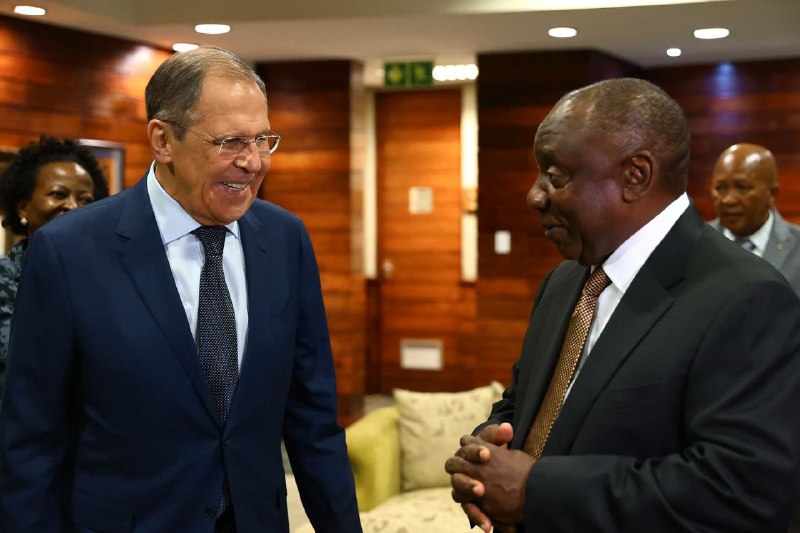
Of great interest to Africa, both parties emphasised the “need to adapt the United Nations to modern realities, including the relevance of admitting more African countries to the UN Security Council”.
Of-course this (UN reforms) remains the elephant in the room of multilateral cooperation, since none of the five members of the UN Security Council – America, Britain, France, China and Russia – is willing to ‘give up’ the veto power it enjoys. Therefore, reserving two seats for the African Union (AU), as has been proposed and endorsed by the European Union (EU) member states of France and Germany – will serve only to dilute this unfettered power.
In any case, should this proposal come to pass, the AU will still have to decide which African countries take these seats, something that could spark serious trouble for the 54-member bloc!
Turing to regional hot spots, Lavrov commended Pretoria’s mediatory role in resolving the Tigray crisis in Ethiopia, as well as South Africa’s efforts within the Southern African Development Community (SADC) to normalise the domestic political situation in Lesotho and eSwatini, and to counter the terrorist threat in northern Mozambique’s province of Carbo Del Gado.
From South Africa Minister Lavrov travelled to the volatile eSwatini where he met and held talks on the economy, security, humanitarian and educational contacts, and tourism with Prime Minister Cleopas Dlamini in Mbabane on January 24th.
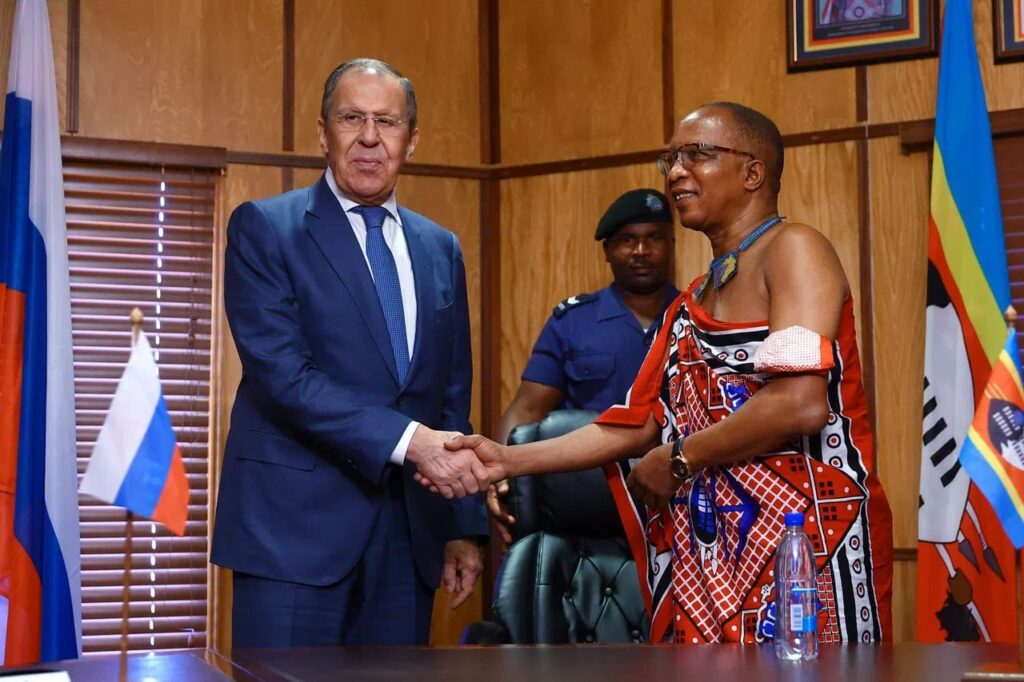
Lavrov expressed Russia’s appreciation for the personal interest that His Majesty King Mswati III had shown in the relations with the Russian Federation when he attended the first Russia-Africa summit in Sochi in October 2019.
He conveyed President Vladimir Putin’s hope that Mswatti will also attend the second Russia-Africa summit, scheduled to take place in St Petersburg in July 2023.
“We are planning quite a considerable and specific agenda of interest to our African friends, including food security, energy security, health and technological development, all these issues being highlighted as priorities for our African colleagues”, Lavrov said of the summit.
But Lavrov was at his most forthright and uncompromising in Angola where he met and held talks with President Joao Lourenco and Minister of External Relations Tete Antonio on January 25th.
Here, he vowed that Russia will do everything in its power to expand its relations with Angola despite the “illegal pressure” coming from the United States and its allies.
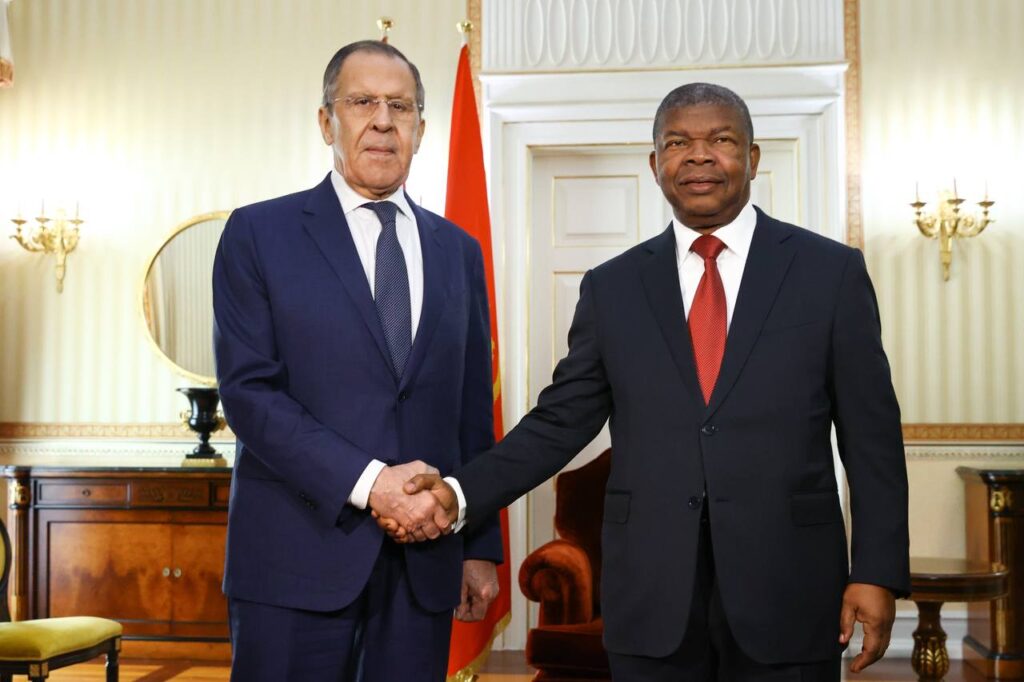
“Our immediate goal is to prepare a meeting of the Intergovernmental Commission on Economic, and Scientific-Technical Cooperation and Trade. We outlined steps to advance our strategic partnership across all areas.,” he told the media after the talks.
He said that he and President Louremco discussed at length the international situation in the context of the West’s course on using Ukraine to “promote Nazism in theory and in practice and to wage a hybrid war against our country”.
Lavrov said they shared their assessments that are based on their contacts with other countries and that they confirmed the unprecedented pressure exerted by the Western countries on the developing economies of Asia, Africa and Latin America.
“President Vladimir Putin has repeatedly pointed out that the West is using the same colonial methods it used before to exploit the developing continents and continues to use them in order to plunder other countries and to use resources of global importance for its own gain.
“The West’s actions prove that it can trample over the values and the globalisation mechanisms that it created and promoted, including inviolability of property, fair competition, or the presumption of innocence at any time, and can betray its allies at any time as well. This can be seen in the practice of the fairly recent events in Afghanistan, Iraq and the 2011 Arab Spring”, he lashed out.
Lavrov warned that serious countries that have respect for themselves are well aware of what is at stake and clearly see the inability of the “owners” of the current international monetary and financial system to negotiate and want to create their own mechanisms for ensuring sustainable development that is protected against outside dictate.
“The initiatives that have been voiced recently, literally just the other day, focus on the need to think about creating separate currencies within BRICS and the countries of Latin America and the Caribbean.
“Without a doubt, this issue will be discussed at the BRICS summit to be held in South Africa in late August 2023”, the Russian foreign minister said.
Curiously, after Lavrov’s visit to southern Africa, the EU’s High Representative for Foreign Affairs and Security Policy, Josep Borrell visited South Africa and Botswana.
It remains a mystery why Botswana was removed from Lavrov’s itinerary, diplomatic sources pointed out that it could be due to Botswana’s ambivalence on the Ukraine-Russia war.
(C) TPA






